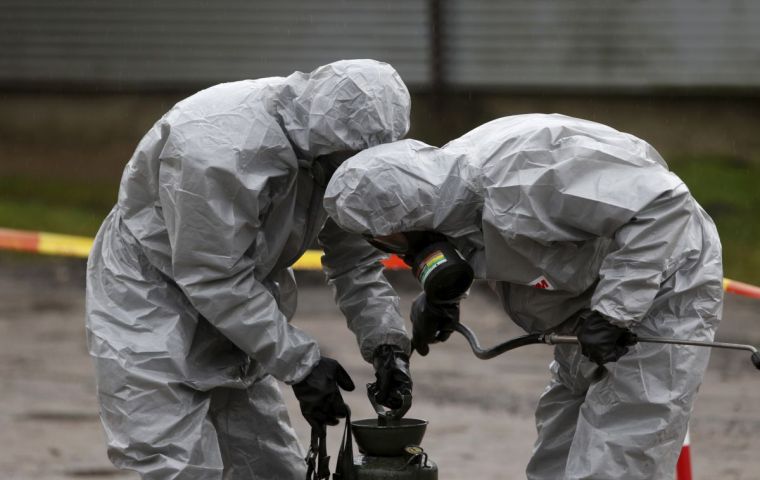MercoPress. South Atlantic News Agency
Brazil willing to open uranium deposits to private sector companies
 Brazil has the 7th largest uranium reserves in the world, but only a third of the country has been explored, data from the World Nuclear Association shows.
Brazil has the 7th largest uranium reserves in the world, but only a third of the country has been explored, data from the World Nuclear Association shows.  Brazil’s mines and energy minister, Bento Albuquerque, said the country expects to resume production at the country’s only uranium mine before the end of the year
Brazil’s mines and energy minister, Bento Albuquerque, said the country expects to resume production at the country’s only uranium mine before the end of the year Brazil’s mines and energy minister, Bento Albuquerque, said the country expects to resume production at the country’s only uranium mine before the end of the year and would open the sector to private companies.
The move to restart Caetité, halted since 2014, is President Jair Bolsonaro’s administration latest efforts to attract foreign commercial interest to an industry currently controlled by state-owned Industrias Nucleares do Brasil (INB).
It also fits Bolsonaro’s plan to boost the nation’s nuclear power by building new plants.
Brazil has the 7th largest uranium reserves in the world, but only a third of the country has been explored, data from the World Nuclear Association shows.
It also has two atomic power plants, Angra 1 and Angra 2, which generate roughly 3% of the country’s electricity.
A third plant, Angra 3, is currently being evaluated; it could cost as much as US$ 16 billion and be completed in 2023.
According to Estado de S. Paulo, Albuquerque plans to expand Caetité in the northeastern state of Bahia. He also wants to break INB’s monopoly by allowing private firms to mine for uranium where the element is not the main resource. He cited as an example the Santa Quitéria project in northeastern Brazil, which holds about 10% of uranium and 90% phosphate.
Brazil is also looking to expand uranium-conversion and uranium-enrichment capabilities to reduce dependence on foreign suppliers part of a larger deal signed on 31 August 2015.




Top Comments
Disclaimer & comment rulesCommenting for this story is now closed.
If you have a Facebook account, become a fan and comment on our Facebook Page!